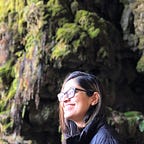Where did all the Wildlife go?
I write this article sitting on the patio of my apartment. I can see a highway from afar where cars are continuously on the run.
I see a patch of well-mowed lawn, and I imagine.
I imagine a peacock spreading its wings and dancing. I imagine a white swan. I imagine a deer with its babies eating grass.
But that’s all I can do. Imagine.
Because in reality, all I can see are chained, well-maintained dogs with their “chained,” well-maintained humans.
Every day, we humans are making this world more and more artificial.
More apartments, more enormous malls, huge offices with their 1000+ lights, more flights, new roads, more cars, highways, and as a charity, some small patches of green here and there to vaguely connect us with our roots.
The green patches in polluted cities are immaculately maintained, just enough to feed our perception of being among nature but also to keep the “real” Nature away from us: no snakes, birds, deer, or other animals.
I often wonder how we humans are so easily satisfied with the so little we have been provided? Is it the distractions? Does buying a new pair of shoes or clothes make do for the natural, intuitive part of us that is taken away?
We want a new gadget, a new car, a new watch, new jewelry, or a bigger house with a bigger immaculately maintained lawn.
Still, We never question about the disappearing birds and animals. We hardly talk enough about the ways we are polluting our planet and killing our Wildlife.
I often wonder if we are so far from the world’s reality because we don’t know what we are missing.
- The joy of seeing a whale jump in the deep blue unpolluted seas.
- The pleasure of seeing a world without plastic pollution.
- The joy of walking through a densely covered forest and breathing the fresh air.
- The joy of sitting on a clean beach and just noticing the waves come and go and see a turtle swim.
Have we forgotten how these things feel?
And in all honesty, we know that everything is not in our hands. We have been tempted and addicted to a safe, problem-free, comfortable lifestyle that has turned our brains into complete mush. Mild inconveniences now give us anxiety (personal experience).
Think of something you need, and you get it within a day through online shopping. Tore a cloth? No problem! You can buy 1000 more at reasonable rates!
Conveniences, added with the issue of no longer having the skills to survive among Wildlife make things much more challenging.
Basic questions like, How to identify a venomous snake vs. a non-venomous one, or How to identify plants with healing abilities, or How to survive with plants grown in our backyard are questions that would terrify the hell out of us.
With increased ignorance, our dependence on corporations, and hundreds of unhealthy products from the supermarket will keep growing which in turn will damage more wildlife.
A vicious cycle.
It’s time we swayed away from the herd and asked ourselves some important questions.
Where are we going wrong?
Is this accelerated pace of disappearing Wildlife, forest, and sea creatures normal? If not, what can we do about it?
Despite not having total control, we still have an essential role in pushing the world towards a positive future. We can start with a few drops of positivity, color, peace, and purity by taking up small, doable tasks such as:
- Using less plastic
- Reducing meat (Meat has a huge environmental impact)
- Sharing your resources with people in need
- Picking up trash and throwing them away responsibly
- Starting a small garden which can serve us with soulful food
- Talking to our friends and families about environmental issues
- Learning more about Nature, especially Wildlife
- Teaching kids about wildlife
- Gaining awareness about products/industries that are polluting the planet
- Spending time in Nature and noticing what is happening to it
- Developing basic skill sets such as cooking, growing your own food, learning to fix things
- Buying fewer things/stuff
- Buying secondhand products than consuming new items
- Talking about over-consumerism and capitalistic mentality
- Talking about environmental conservation
- Seeking happiness rather than things
- Talking about the human population and its impact (deciding to have fewer kids or adopting instead)
…and so much more.
As you finish reading this article, many more wildlife would have been destroyed by our sheer ignorance. Our inactions have consequences. So, let’s start making small lifestyle changes.
Before we know it, our imaginations of a greener, purer planet may become a reality.
I have hope, a lot of hope.
Do you?
Check out my YouTube channel for inspiring videos: https://www.youtube.com/channel/UCBfUxVSxC0koxGSkwzVRYzQ
